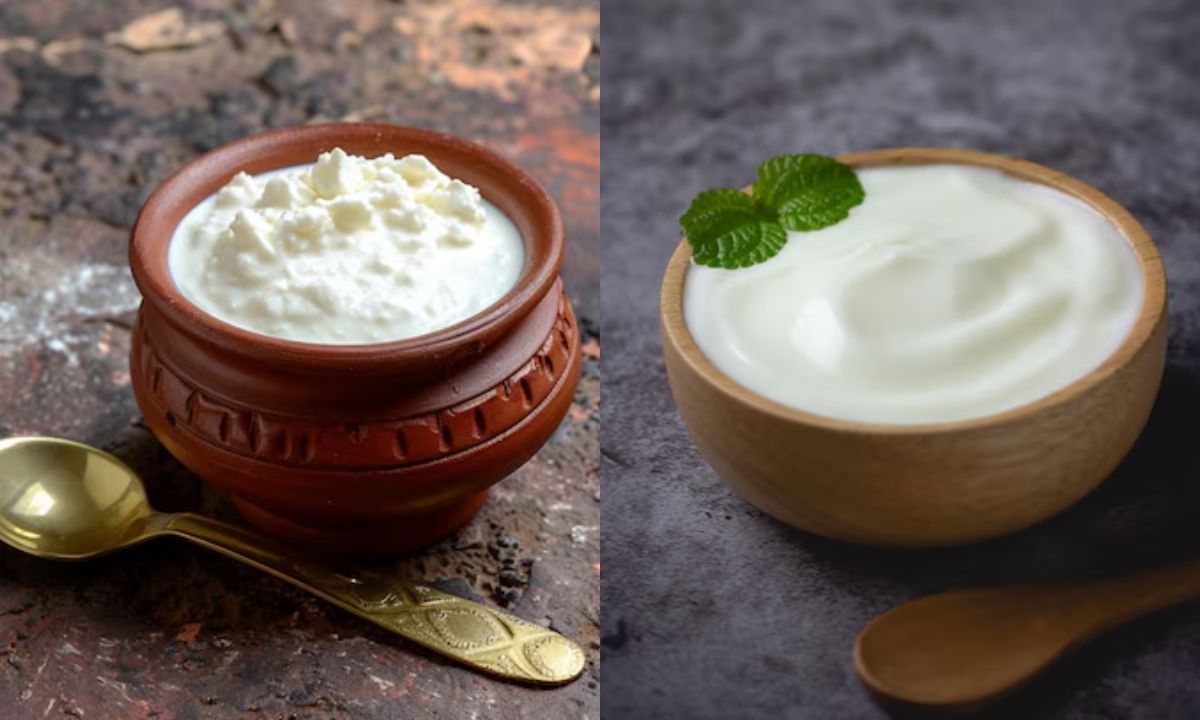Curd and yogurt are both dairy products commonly consumed around the world, yet they are often confused with each other due to their similar appearance and texture. While both are made by fermenting milk, there are several key differences that set them apart. We’re going to explore the differences between curd and yogurt and explain how each is made, their health benefits, and how to incorporate them into your diet.
What is Curd?
Curd is a dairy product made by curdling milk using an acidic substance like lemon juice or vinegar, or by adding a small amount of previously prepared curd as a starter. The milk is heated, and once it cools down to room temperature, the starter culture is added, causing the milk to coagulate. Curd doesn’t have a standardized bacterial culture and may vary in texture and taste depending on the milk used and the environment.
What is Yogurt?
Yogurt, on the other hand, is produced by fermenting milk using specific bacterial cultures: Lactobacillus bulgaricus and Streptococcus thermophilus. These probiotics are the key ingredient in yogurt production. The bacteria ferment the lactose (milk sugar) in the milk, transforming it into lactic acid, which gives yogurt its characteristic tangy taste. Unlike curd, yogurt is produced under controlled conditions, ensuring a consistent texture and flavor.
Also Read: Benefits Of Curd And Sugar: 5 Things To Know Before Having Curd And Sugar In The Morning
Key Differences Between Curd and Yogurt
Bacterial Culture: One of the primary differences is the bacterial culture used. Curd is made using naturally occurring bacteria, which can vary from batch to batch, whereas yogurt is made using a specific strain of bacteria, ensuring uniformity in taste and texture.
Texture and Taste: Curd tends to have a creamier, milder taste, while yogurt is often more tangy and thicker due to the specific bacterial fermentation process.
Nutritional Benefits: Yogurt is often considered a more nutritious option because it contains active probiotics, which are beneficial for gut health. These probiotics can help with digestion and support the immune system. While curd also contains some probiotics, the amount is inconsistent due to the absence of standardized bacteria.
Production Process: Curd can be made at home easily without the need for specialized cultures, while yogurt requires a specific set of bacterial cultures and controlled fermentation temperatures for consistent results.
While curd and yogurt share similar origins, the difference lies in the bacterial cultures used, their production processes, and the resulting taste and texture. Whether you choose curd or yogurt depends on your taste preferences and dietary needs, but both offer a range of health benefits. Incorporating either into your daily diet can improve digestion and boost overall health.
Also Read: Celebrity Hairstylist Amit Thakur Disapproves Of DIY Curd, Egg Hair Mask. Here’s Why!

